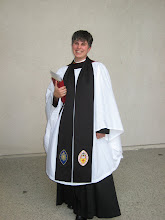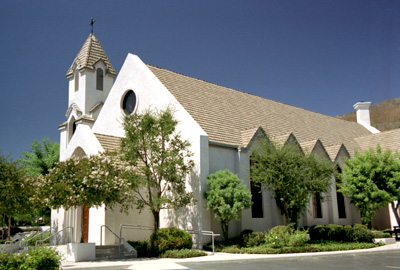 Here is the article mentioned today in the homily. I took it straight from beliefnet, a great website to check out when you have a moment. Enjoy!
Here is the article mentioned today in the homily. I took it straight from beliefnet, a great website to check out when you have a moment. Enjoy!Fr. Keating, a Trappist monk at St. Benedict's monastery in Snowmass, Colorado, is a co-founder of the centering prayer movement. He recently spoke to Beliefnet producer Anne A. Simpkinson about the contemplative dimensions of the Lenten season.
How can we make Lent a more contemplative time? And, if people are already practicing contemplative prayer, how can they deepen their practice?
Lent is meant to be a communal retreat for all Christians--at least those who observe Lent. The liturgy is an instruction in the mystical meaning of Lent as preparation for the Holy Week celebration of the mystery of redemption.
Redemption basically is about holistic health, if you want to translate it into modern parlance. What I suggest--based on the Christian tradition but not often preached--is that you can't enter into t
he fullness of the Pascal mystery of the redemption unless there is a radical transformation of motivation within you. So, on the first Sunday of Lent, you have Christ going into the desert and experiencing basic human instincts--security needs, power-control needs, and affection-esteem needs. The three temptations that [Christ faced in the desert] address each one of those issues.
If you accept the belief that baptism incorporates us in the mystical body of Christ, into the divine DNA, then you might say that the Holy Spirit is present in each of us, and thus we have the capacity for the fullness of redemption, of transformation.
Lent is a time to renew wherever we are in that process that I call the divine therapy. It's a time to look what our instinctual needs are, look at what the dynamics of our unconscious are. The church is hinting in the first Sunday of Lent that Lent is about temptation, or what we think is temptation. It's about the raw experience of human instincts, and how they unconsciously influence our conduct and decisions all our life long unless we keep working with them.
With regard to prayers, I would suggest doing a little more meditation, add another half-hour period [of prayer], if that's possible. If it's not possible, be more alert to the false self and its [emotional] programs as they manifest in everyday life. This is a form of practicing the presence of God.
Do you think that giving up chocolate or meat or whatever is only a scratching of the surface of Lent?
Yes, but if you scratch the surface and find out there's something underneath, it's helpful that way. (Laughter) It seems to me that scratching the surface of the unconscious, allowing a few cracks to show, hastens the evacuation [of emotions tied to the false self], and is a good thing.
I imagine giving up chocolate would make us understand how powerless we are because of how hard it is to do. I think that's one of the benefits of something like that. If we can't give up chocolate for 40 days, how can we give up other things?
It's a good start. But the liturgy, or the church, whoever put that together in their mystical wisdom wasn't thinking about your taste buds. (Laughter) Lent is about more serious matters. The Church was thinking about how it feels to confront the emotional damage of a lifetime that is sitting unnoticed in your unconscious. Unless one does an extraordinary kind of deep psychotherapy, it might take five years on the couch [to uncover and work with such things]. But the practice of a non-conceptual meditation [centering prayer] initiates a process that may go on for a lifetime. Every Lent is an invitation to go deeper into that process.
Lent is--and I think the Eastern Orthodox Church would agree--a 40-day retreat that the church invites everybody to go through every year. If it is really well done, it would be comparable to an extended Vipassana (Buddhist meditation) retreat. It would have a transforming effect each time you did it.
It would be a real challenge to take on Lent this year because our lives are so pushed and pulled by so many external demands.
Perhaps more than ever today. [I think of] the intrusion of mass media. I don't know what that's going to do to people, what it's going to do to a generation without some balancing factor like Lent. Lent could become more and more crucial to spiritual practice. Even 10 days of retreat is barely enough to get in touch with oneself, and then you go back and you lose it in three or four days. That's why Contemplative Outreach started an immersion retreat, which lasts three weeks, and why we're considering retreats of greater length.
Illustration: Temptation of Christ, stained glass of JoKarl Huber in the Church of Saints Peter and Paul in Weil der Stadt, Germany; photograph by Rebecca Kennison, 1989




